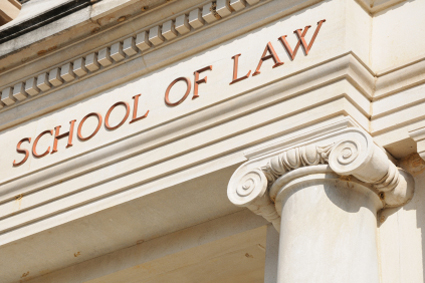
Highest paying law firms: current New Qualified and Trainee salaries
February 20, 2025
Maintaining Motivation as a Law Student
February 20, 2025The UK government demanded access to encrypted data stored by Apple users worldwide in its iCloud service. The Home Office served this demand under the Investigatory Powers Act (IPA), which ignited global debate over privacy, encryption, and government surveillance.
Apple’s view on privacy
Apple said it views privacy as a “fundamental human right”. Apple’s Advanced Data Protection (ADP) service provides an extra layer of privacy protection by adding end-to-end encryption to iCloud data stored on its servers and products. This means that Apple cannot access user data without the encryption keys, which are solely controlled by the user.
UK’s stance /demand and legal framework
The UK’s Home Office served the demand under the Investigatory Powers Act (IPA), a controversial law often referred to as the “Snooper’s Charter”. The legislation allows the government to request data from tech companies, even if they are not based in the UK. The UK government stated it wants access to encrypted data to combat serious threats to national security. The government said it would only be targeting an individual’s information rather than for mass surveillance.
However, the UK government also highlighted its growing concerns over encryption being used to shield criminal activities, making it harder for law enforcement to investigate threats and restore justice.
Case: FBI vs Apple
Apple has faced similar demands from governments in the past, and Apple refused to unlock the iPhones to help law enforcement in high-profile cases. For example, in 2016, Apple refused to unlock the iPhone of a man who carried out a mass shooting at a US air base. But, Apple refused and cited the dangers of creating a backdoor that could be exploited by criminals. The FBI was able to gain access to these phones later without Apple’s help.
Challenges and concerns:
- Mass surveillance risks: How would the public even know if there was mass surveillance? How would we stop the government from violating our privacy and personal information?
- Cybersecurity vulnerabilities: Not only that, but cybersecurity experts have also warned that creating a backdoor for law enforcement would inevitably be discovered. It is also only a matter of time before this back door is discovered and accessed by hackers, criminals, and hostile states.
Apple’s stance
Apple said it would rather pull encryption services like ADP from the UK market rather than follow government demands.
However, the Investigatory Powers Act applies worldwide to any tech firm with a UK market, even if they are not based there. This means that simply withdrawing services may not be enough to ensure compliance, raising further legal and operational challenges for Apple and other tech companies.
Implications for tech industry / Broader Implications
The UK’s demand is part of a global trend where governments are requesting access to encrypted data. However, this raises significant legal, ethical, and technical questions:
- How can governments balance national security needs with the fundamental right to privacy?
- What safeguards can be put in place to prevent abuse of surveillance powers?
- Should tech companies be forced to weaken encryption, knowing the risks it poses to global cybersecurity?
The standoff between Apple and the UK government underscores the complex interplay between privacy, security, and legal compliance. While the government’s concerns about national security are valid, the potential consequences of weakening encryption are far-reaching. As the debate continues, it is crucial to find a balanced approach that protects both individual rights and public safety.
Commercial awareness:
SWOT analysis
|
Strengths |
Weaknesses |
|
Apple’s strong commitment to privacy enhances brand trust. |
Potential withdrawal of Apple’s encryption services from the UK may disrupt businesses. |
|
Legal firms specializing in privacy law may gain new clients. |
Law firms may struggle to advise clients due to evolving regulations. |
|
|
Compliance costs for tech firms and their legal teams may increase. |
|
Opportunities |
Threats |
|
Growth in demand for legal expertise in cybersecurity and data privacy. |
Potential conflicts between UK law and international legal frameworks. |
|
Law firms can offer advisory services on regulatory compliance. |
Strained relationships between tech companies and governments. |
|
Increased legal work in litigation and class-action lawsuits. |
Rising cybersecurity risks due to weakened encryption. |
PESTLE Analysis
|
Factor |
Impact |
|
Political |
Increased government surveillance powers under the IPA. |
|
Economic |
Higher compliance costs for tech firms; potential job creation in cybersecurity law. |
|
Social |
Public concerns over privacy versus security of the country |
|
Technological |
Risk of cybersecurity vulnerabilities if encryption is weakened. |
|
Legal |
Conflicts between national security laws and global data protection regulations e.g. UK’s IPA vs EU’s GDPR |
|
Environmental |
Minimal direct impact, but legal costs and compliance efforts could divert resources from sustainability initiatives. |
Websites used:
Article written by Amanpreet Singh, Birmingham City University LLB graduate and current LLM student at the University of Birmingham.





